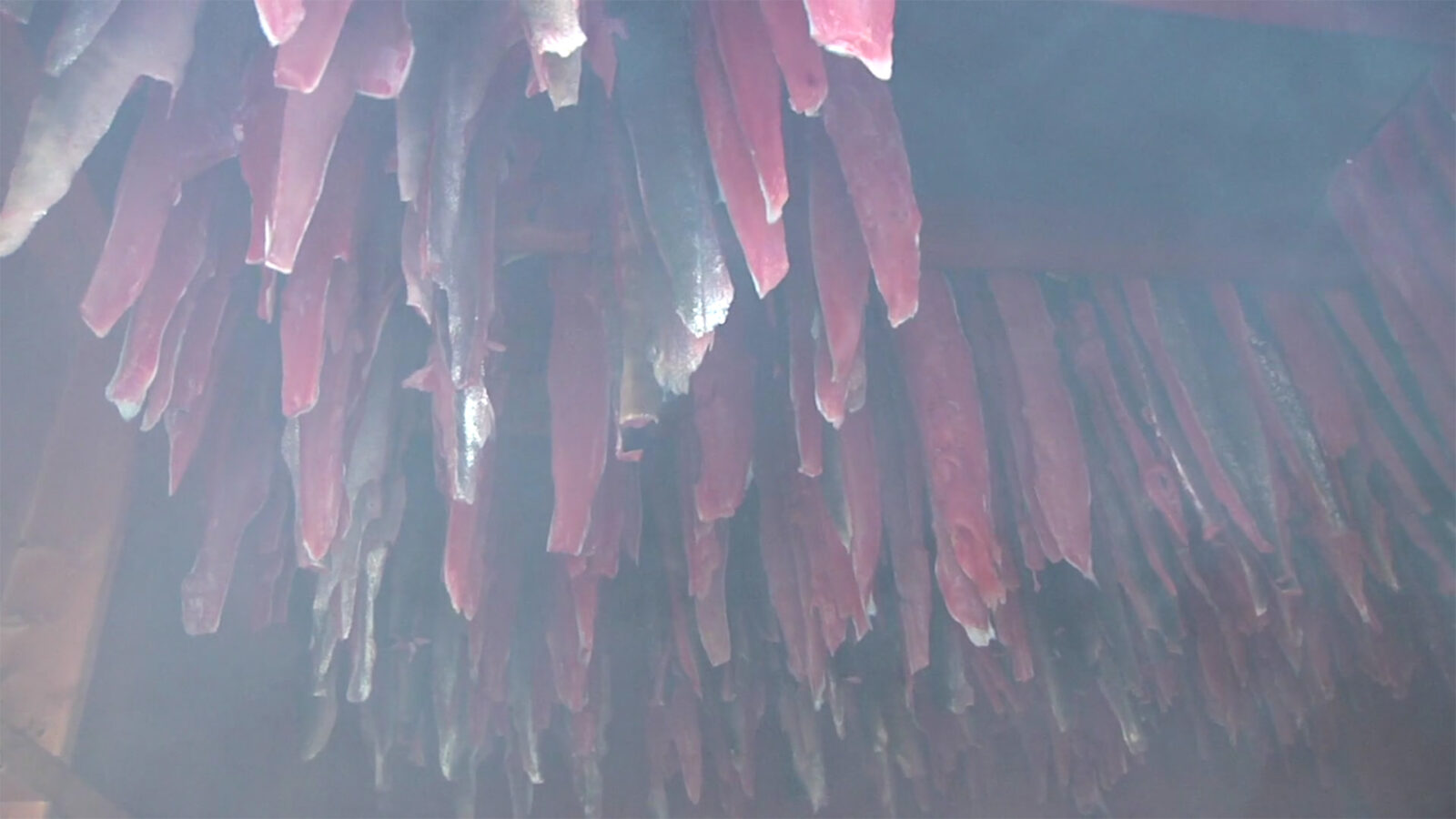“There’s many things I would recommend in this life and smoked fish is definitely on the top of that list”, enthuses Randi Purser of the Chief Kitsap Academy, Washington State, USA.
Smoked salmon is a traditional food of the Suquamish Tribe. Only a handful of tribal members know how to gather and preserve it. They are passing the knowledge to youth at Chief Kitsap Academy.
The Suquamish produced a variety of ingenious tools and other devices to efficiently harvest fish and gather other foods. The Suquamish caught salmon with nets, traps, weirs, hook and line, and netting from canoes. Chinook, Coho and Chum were the salmon most frequently caught in local water.1
“It’s a good opportunity to pass on something my great grandmother had taught me…”, explains Jay Mills.
With a smile, Kaylayla Ives, one of the young people involved in this project, talks about why learning traditional foodways such as this are important to her, “There’s so many chemicals in my food nowadays, that just knowing that we did this ourselves, it tastes so much better. It makes me feel really good because I’m feeding my Indian…”
The film above documents the process from catching the fish, preparing the fish, curing the fish with salt and smoking it in the community smokehouse.
The wood used for smoking is alder. “Green alder is what produces the most smoke.” explains Randi Purser.
The fire must be kept going for around a week typically and must be checked every few hours, around the clock. “Yes, I got a little tired…especially the first couple of days,” chuckles Purser, “But you know, all the kids’ work is hanging in a house. I couldn’t just, you know, let the fire go out…”
To learn more about the Chief Kitsap Academy click here. Also, check out the school’s YouTube channel here.

Absolutely love hearing about the Suquamish Tribe’s traditional salmon smoking methods passed down at Chief Kitsap Academy! It’s fascinating how they use alder wood and keep the fire going for a week – dedication at its finest! Jay Mills sharing knowledge from his great grandmother and Kaylayla Ives emphasizing the importance of learning these ways in a world full of chemicals really hits home. Have any locals tried making smoked salmon using these techniques? I’m tempted to give it a shot and savor the taste of something prepared with such care and tradition.